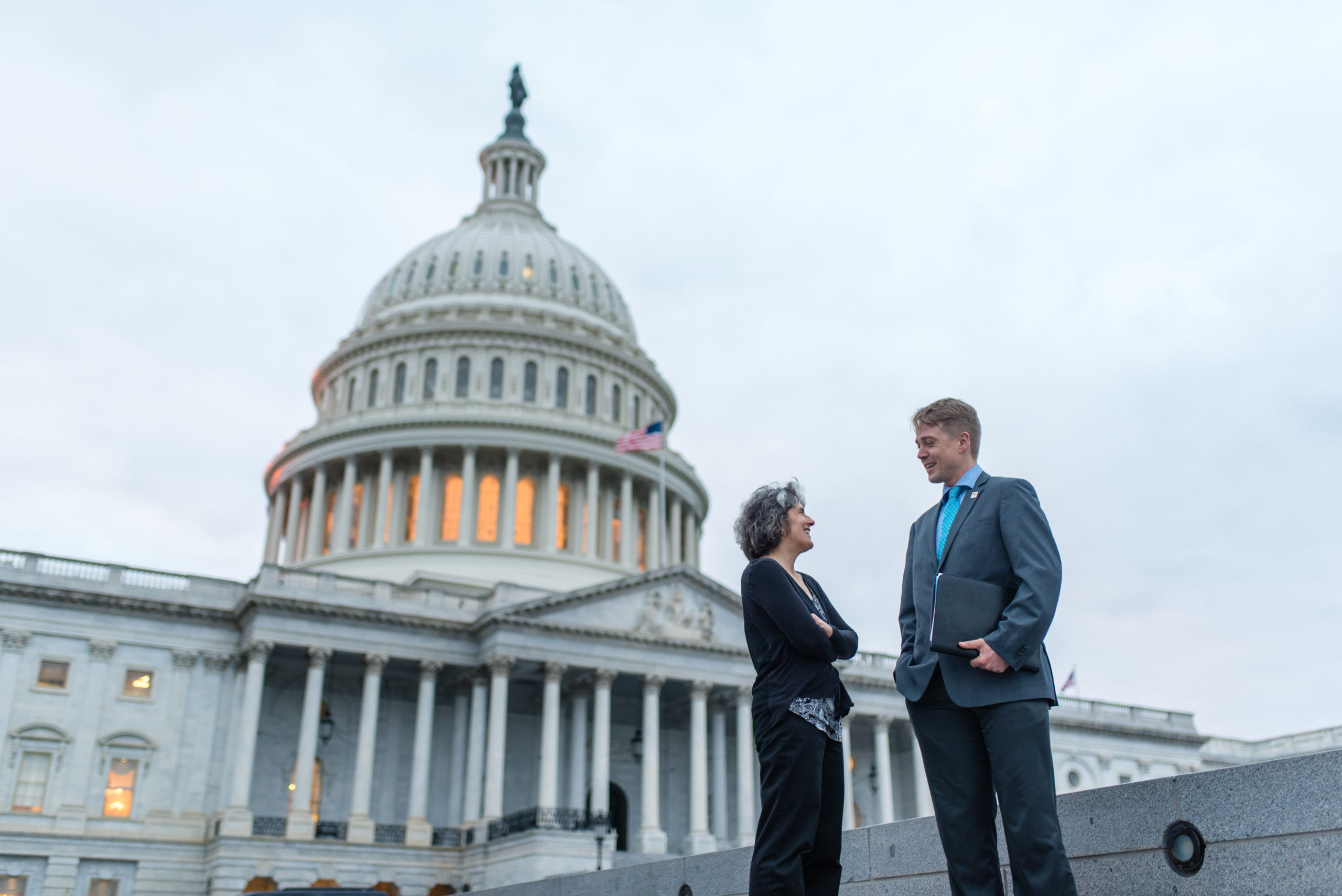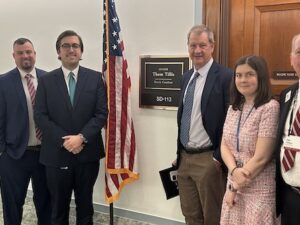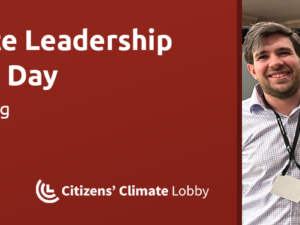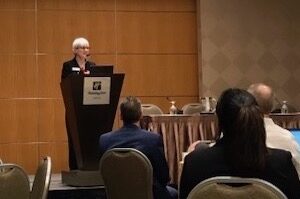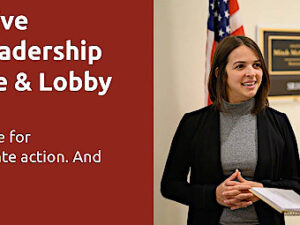CCL’s legislative roundup: What we’ve accomplished
By Katie Zakrzewski
CCL’s mission is to build the political will for a livable world. With each piece of legislation we support, we get closer to making that world a reality. In addition to pushing for a carbon fee and dividend, we’ve engaged on several other bills that have become law. Here is a recap of the legislation that CCL has helped progress.
Growing Climate Solutions Act
UPDATE: Signed into law Dec. 20, 2022
The Growing Climate Solutions Act was included in the omnibus spending bill passed during the last week of 2022. The bill garnered broad bipartisan support since it was introduced.
Read the press release about the Growing Climate Solutions Act in the omnibus bill here.
Passed Senate on Jun. 24, 2021
CCL volunteers helped attract over 40 bipartisan cosponsors for the Growing Climate Solutions Act in 2021. CCL has long supported this bill because it would complement carbon pricing with its climate-smart farming mechanisms. The Growing Climate Solutions Act passed the Senate with an overwhelming 92-8 vote and waits for its turn in the House.
Read more about our efforts on the Growing Climate Solutions Act in this blog post.
The Hope for Homes Act
Passed the House on Nov. 19, 2021
The Hope for Homes Act was one of CCL’s supporting asks in our June 2021 lobby meetings and throughout the summer. This bipartisan legislation was designed to cut energy costs for homeowners, while also investing in clean energy jobs and technology. This secondary ask passed the House as part of the Build Back Better Act.
The Storing CO2 And Lowering Emissions (SCALE) Act
Signed into law on Nov. 15, 2021
The SCALE Act was another one of CCL’s supporting asks in our June 2021 lobby meetings and in the weeks that followed. The SCALE Act was created to help develop carbon capture and storage (CCS) infrastructure as a way of reducing carbon dioxide emissions while creating regional economic opportunities and jobs. This secondary ask was included in the “bipartisan infrastructure framework” or “BIF” and passed by both chambers of Congress in November 2021. President Biden signed the bill into law on Nov. 15, 2021.
Read more about our efforts on the SCALE Act in this blog post.
The USE IT Act
Signed into law on Dec. 21, 2020
Just before heading home for the 2020 holidays, the U.S. House and Senate passed a massive omnibus package. The package, which includes COVID relief and government funding, was one of “the most significant energy legislation in more than a dozen years,” according to Politico. Politico went on to call the USE IT Act “a top priority of outgoing Environment and Public Works Chair John Barrasso (R-Wyo.) that would boost carbon capture and direct air capture technologies.” CCL volunteers have lobbied on this legislation since June of 2019, too, and it gained cosponsors after our lobbying pushes.
Read more about our efforts on the USE IT Act in this blog post.
The BEST Act
Signed into law on Dec. 21, 2020
In July of 2020, CCL volunteers helped add dozens of new cosponsors onto the Better Energy Storage and Technology (BEST) Act in just one week. CCL volunteers encouraged 24 Republican and Democrat members of Congress to support the act, which would provide research and development for grid-scale energy storage systems and authorize at least five demonstration projects for new energy storage technologies. Such technology is viewed as essential to the deployment of solar and wind energy. The bill was introduced as bipartisan legislation in the House — H.R. 2986 — in the spring of 2019 by Rep. Bill Foster (D-IL). In the Senate, the bill — S. 1602 — was introduced by Maine Republican Susan Collins and New Mexico Democrat Martin Heinrich. The BEST Act was then included in the Clean Economy Jobs and Innovation Act and passed in the House on Sept. 24, 2020. It was ultimately included in the omnibus package passed by the House and Senate at the end of 2020.
Read more about our efforts on the BEST Act in this blog post.
Climate-Ready Fisheries Act
Signed into law on Dec. 21, 2020
CCL volunteers also advocated for the Climate-Ready Fisheries Act in June of 2020 — the bill gained 10 cosponsors after our lobby days. Provisions from this legislation were included in the omnibus package as well, and they require a report to be prepared about efforts to adapt our nation’s fisheries to the impacts of climate change.
Read more about our efforts on the Climate-Ready Fisheries Act in this blog post.
The RECLAIM Act
Passed the House on Jul. 19, 2020
The RECLAIM Act had been a secondary ask during CCL lobby meetings since July of 2019. In July of 2020, the RECLAIM Act was a piece of bipartisan legislation to help distressed coal communities was passed in the U.S. House as part of a $1.5 trillion infrastructure bill, the Moving Forward Act. The Moving Forward Act was not taken up by the Senate, and the BIF replaced it. The legislation, also known as the Revitalizing the Economy of Coal Communities by Leveraging Local Activities and Investing More Act (H.R. 2156), would fast-track $1 billion in funding to clean up abandoned coal mines, creating thousands of jobs in the process. The cleaned-up sites would be connected to long-term economic projects in agriculture, renewable energy, wildlife habitat, and recreational tourism. The bill was reintroduced in the 116th Congress in April of 2019 by Rep. Matt Cartwright (D-PA) and accumulated 65 cosponsors, including 14 Republicans. A Senate version of the bill was introduced by Sen. Joe Manchin III (D-WV) and had six cosponsors.
One thing is for certain: these legislative successes might not have been possible without the hard work of our volunteers, who are constantly introducing their Congressional offices to innovative ways of tackling climate change.
All of the examples above are proof that when we work together, we can do great things. You can find more information about CCL’s latest legislative goals here.
Interested in joining CCL and helping advance climate legislation? Join here.

